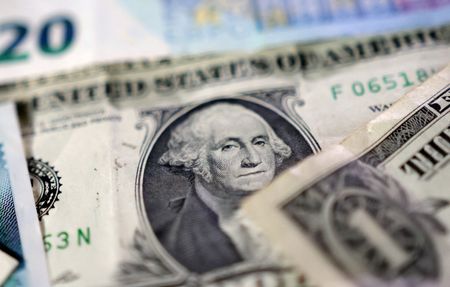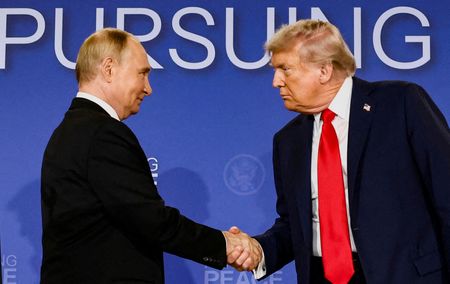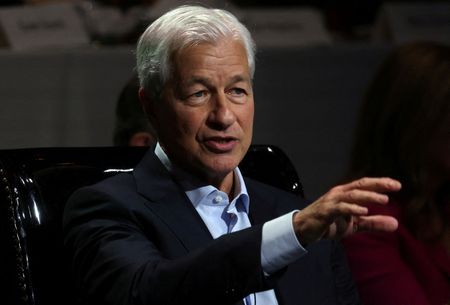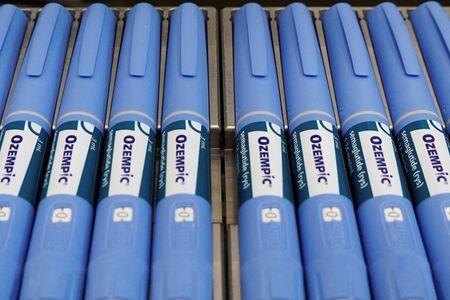By Robert Harvey and Julia Payne
LONDON/BRUSSELS (Reuters) -The European Union has set a requirement for fuel importers into the bloc to prove their fuels are not made from Russian crude, according to a document published on Thursday.
The document provides guidance on the EU’s upcoming ban on imports of fuels refined from Russian crude, part of its 18th sanctions package against Russia over its war in Ukraine. The ban takes effect from January 21 next year.
Here are the details of the document:
WHAT IS THE EU ADVISING IMPORTERS?
Operators will be expected to provide EU customs with “appropriate evidence” about the country where the crude oil used in the refining of the fuel was extracted from, with some key exceptions highlighted below.
The EU advises importers to insert contractual clauses with their supplier to guarantee non-Russian crude oil origin, in order to shift liability to the supplier if it is later established that Russian oil was used.
FUEL IMPORTS FROM COUNTRIES STILL BUYING OR BLENDING RUSSIAN CRUDE
The EU said operators should “exercise enhanced due diligence” with imports from Turkey, India and China, the top importers of Russian crude.
It also said buyers should take caution when importing from “countries which are known for mixing crude of various origins.”
Imports from refineries which run Russian and non-Russian crudes on separate production trains will have to show evidence, such as a refinery attestation, that the product came from the non-Russian train.
Buyers from refineries where Russian and non-Russian crude are processed together will have to provide evidence that no Russian crude was received or processed 60 days prior to the bill of lading date.
Imports from refineries which claim to use Russian oil for domestic fuel demand, and non-Russian for exports, on an aggregate basis, will not be permitted.
EXCLUSION FOR PARTNER COUNTRIES AND NET CRUDE EXPORTERS
The ban will not apply to imports from Canada, the UK, the U.S., Norway and Switzerland, and therefore no evidence on the origin of crude oil is required on fuel imports from those countries.
Fuel imports from countries that were net exporters of crude in the previous calendar year are also exempt but may face scrutiny.
Net-exporter status can be rebutted if a country is importing “significant and disproportionate” volumes of Russian crude, or is suspected of being used as an export hub for Russian or Russian crude-derived fuels.
EXCLUSION FOR FUELS USED ON VESSELS AND FLIGHTS
The EU also made an exception for vessels bunkering marine fuels refined from Russian crude, so long as the marine fuel is for burning during a voyage and not cargo.
The same applies for aircraft burning jet fuel on a flight from a third country to an EU state.
WHAT ABOUT COUNTRIES OUTSIDE THE EU?
The ban only applies to countries importing into the EU, not third countries including those which import via EU waters.
(Reporting by Robert Harvey in London and Julia Payne in Brussels, editing by Nia Williams)










